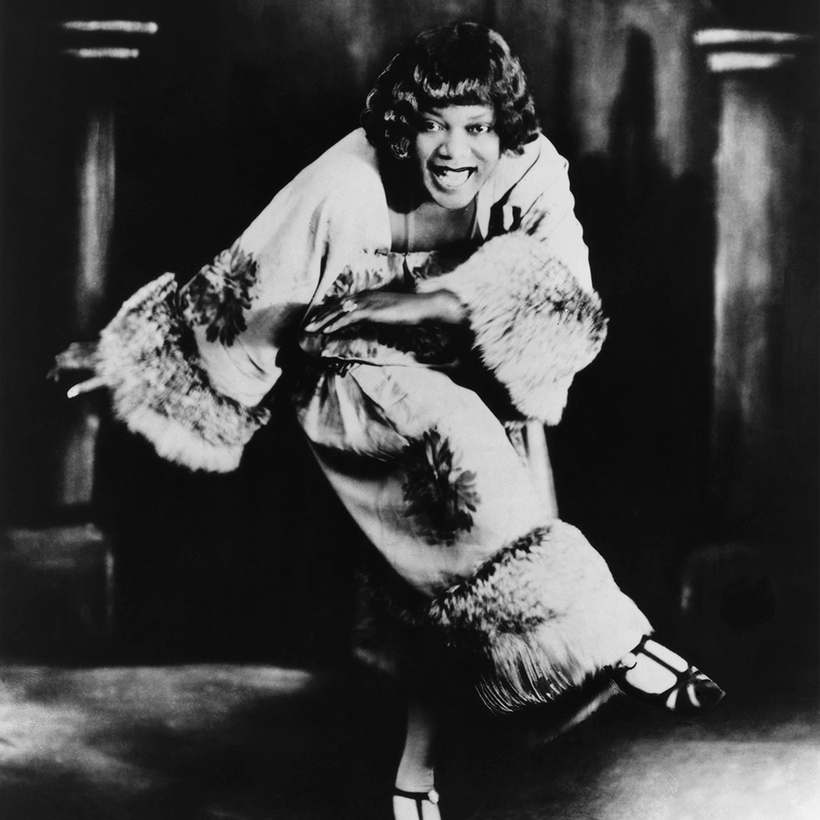There’s a fairy-tale quality to the most famous anecdotes about Bessie Smith, the orphan who sang for street-corner nickels before transforming herself into the “Empress of the Blues”. One legend insists that, aged 17, she was asleep in bed when the blues matriarch Ma Rainey crept in and threw her in a burlap sack, spiriting her away into her traveling revue.
Later, in North Carolina, Smith single-handedly chased away a pack of Klansmen who were loosening the tent poles over her stage. “You just pick up those sheets and run,” she bellowed, and they did. Her live shows generated magic, her uninsulated voice plugging audiences straight into the pain of love, poverty, sickness and survival. “She could bring about mass hypnotism,” the jazz guitarist Danny Barker recalled.
Scotland’s national poet Jackie Kay relishes these folk memories, but in this unconventional exploration of Smith’s life, originally published in 1997, she reaches for the flesh-and-blood woman and her tangible legacy — a “rich and redolent blues” that can be paired with modern anxieties and problems. “Try to imagine asking her about anything that is going on today, from the floods, to the climate crisis, to the coronavirus, to the Black Lives Matter movement, to the Me Too movement,” Kay suggests in her new introduction. As Smith sang on her 1923 debut, “Downhearted Blues”: “Trouble, trouble, I’ve had it all my days.”
Out of Time
Born in Chattanooga, Tennessee, in 1894, Smith was one of eight siblings and was orphaned by the time she was eight. Busking made her a breadwinner; her formidable talent won her a spot in the Moses Stokes Travelling Show alongside Rainey, whose open lesbianism, Kay imagines, encouraged Smith to express her love for women.
Audiences quickly recognised Smith’s brilliance as a performer, although her raw talent initially proved a hard sell for the music industry. In 1923 Okeh Records turned her down for being “too rough”; Black Swan passed after she shouted, “Hold on, let me spit!” mid-audition.
That unmediated directness propelled Smith’s music, however, and when Columbia Records took a chance, they hit gold when “Downhearted Blues” sold 780,000 copies in six months to an audience who recognized the struggle in her voice. Between 1923 and 1933 she recorded 160 songs; at her 1925 peak, exhausted by the struggles of touring the Jim Crow South, she had the option of buying her own railroad car.
Here she was in control, cooking stews for her crew and sleeping with chorus girls in her cramped quarters. However, by the Depression Chicago blues — “men with acoustic guitars” — had started overshadowing the classic female blues singers, the touring circuit’s vaudeville stages were being converted into cinemas and Smith’s earnings declined, painfully foreshadowed, Kay writes, in her song “Nobody Knows You When You’re Down and Out.”
She died in 1937 after a car crash as she traveled through Mississippi with her comeback revue, and lay in an unmarked grave until 1970 — “a victim of America’s epic tradition of forgetting its black people, forgetting their existence, wiping out their significance”. Janis Joplin was among those who paid for Smith’s headstone, just months before her own death.
Columbia Records hit gold when “Downhearted Blues” sold 780,000 copies in six months to an audience who recognized the struggle in Bessie Smith’s voice.
The living Smith barrels through these pages in a whirl of outrage and appetite. She loved the speakeasies known as “buffet flats” because nothing was off the table; her song “Gimme a Pigfoot (And a Bottle of Beer)” accurately reflected her no-frills tastes.
She was prone to violence, leaving a trail of bloodied chorus girls and right-hooked love rivals. Yet this book also acknowledges the profound sadness of Smith’s story; today, Kay states soberly, the star would have been recognized as an alcoholic, a woman who started drinking heavily as a child, whose preferred moonshine came from a man who lived under a bridge.
Her imperial status didn’t protect her from being viciously beaten by her rapacious second husband, Jack Gee, however, or his sending her adopted son, Jack Jr, into care without her knowledge. Nor did it protect her from the racism that probably accelerated her death in Mississippi, Kay quietly highlighting the ambulance that removed a white casualty from the crash scene first, and the doctor who declined to take her to hospital in his car. In one of the bold first-person interludes punctuating the text Kay imagines the dying Smith berating God for being another man letting her down.
Today, the star would have been recognized as an alcoholic, a woman whose preferred moonshine came from a man who lived under a bridge.
As with “She Come by It Natural,” Sarah Smarsh’s recent hymn to Dolly Parton, Kay is partly writing a love song to a hero, a woman who has become knotted into her own life. Adopted by white parents in 1961, Kay and her brother were the only black people in her Glasgow suburb. On her 12th birthday her father gave her a copy of Bessie Smith: Any Woman’s Blues and she instantly felt a connection: “I reached out and claimed Bessie.” Kay’s sexuality was reflected back at her too, whether miming along to Smith with her first crush, Gillian, or thrilling to a book about the singer that revealed all her on-the-road chorus girl liaisons. “What more could a girl want?”
In surviving photographs Smith appears startlingly modern, so alive she might sweep out of the frame in a scatter of rhinestones and feathers. Kay replicates that closeness in her writing, contextualizing Smith while honoring the physical realities of her life, the punches thrown and received, the bad liquor and worse men, the power of her song and the impotence of her end.
“The greatest blues singer in the world will never stop singing,” her belated headstone reads. Kay’s book is the amplifier that Smith’s voice deserves.

